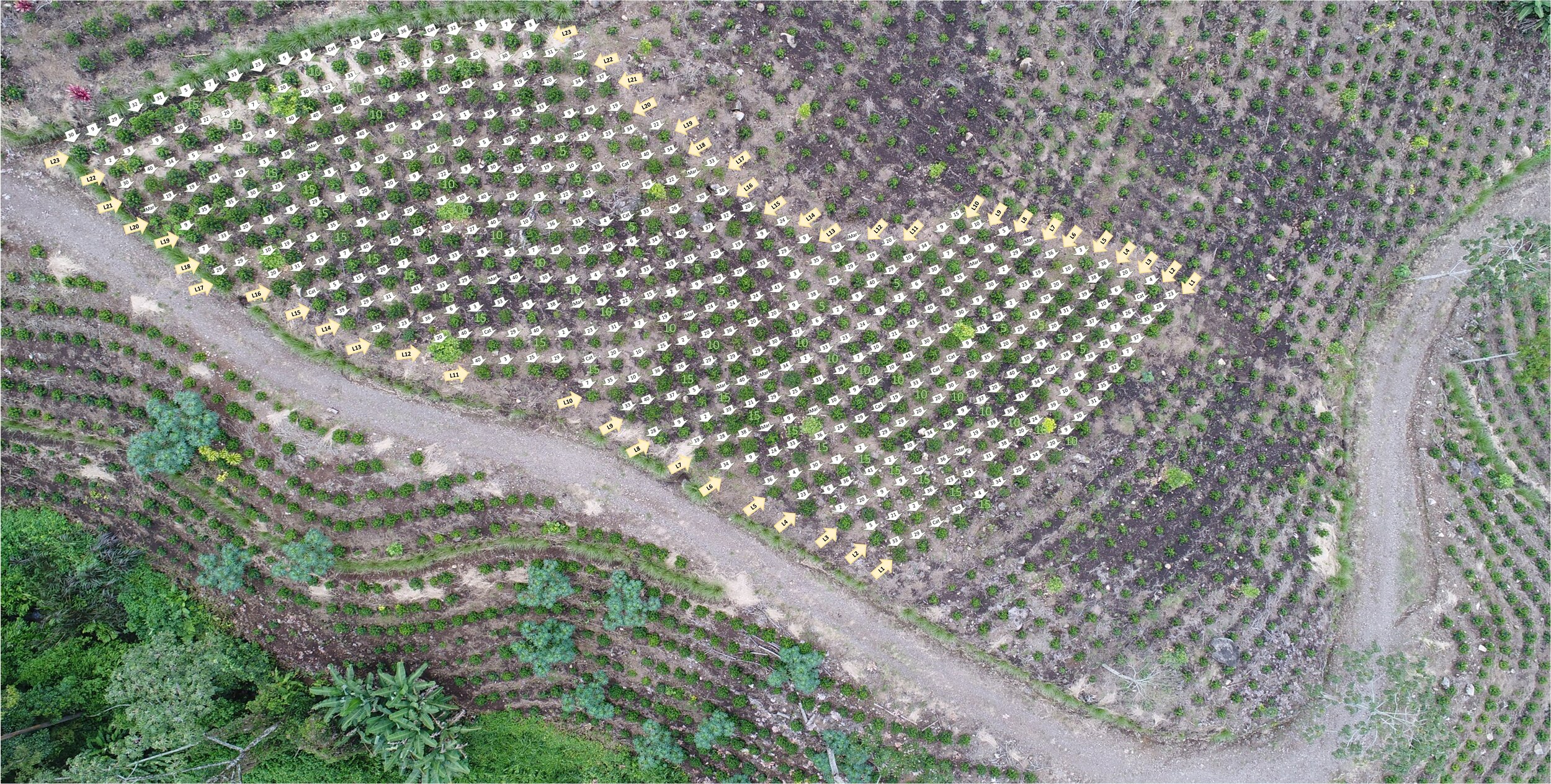Celebrating Innovation with our Costa Rica Coffee Set
Blue Bottle gives back to World Coffee Research
By Blue Bottle Sustainability Specialist Audrey Waldrop
A nursery at Aquiares Farm in Costa Rica with experimental F1 hybrid varieties. Photo courtesy of World Coffee Research
This holiday season, we are proud to be donating a portion of the proceeds from our Costa Rica Coffee Set to support the important environmental work of the nonprofit agricultural research organization World Coffee Research (WCR). The set, with its kaleidoscopic range of tasting notes, explores processing's influence on flavor. By experimenting with new tools and fermentation periods, these producers pay homage to the craft and showcase coffee's innate complexities.
Channeling this spirit of innovation, WCR is working to identify the next generation of top-performing coffee varieties in places like Costa Rica and more than 13 other coffee-producing countries. WCR designed the field trials to enhance coffee quality, productivity, and climate-resilience with the end goal of improving farmers livelihoods.
So what does it take to grow a new coffee variety?
In 2015, World Coffee Research developed 43 hybrids between existing, commercialized coffee varieties and wild types that CATIE, the coffee germplasm bank in Costa Rica, provided. Of the 900 wild types in CATIE's repository, WCR identified 100 that represent the greatest genetic diversity.
WCR then crossed a subset of these coffees with existing varieties, forming 43 new candidate varieties called F1 hybrids. In 2017 and 2018, WCR planted these F1 hybrids at four sites—two in Costa Rica, one in El Salvador, and one in Rwanda.
Why does this work matter for sustainability?
F1 varieties, in general, outperform traditional varieties. This means they typically produce more cherry per plant and demonstrate greater adaptability to climate change, including increased resilience to pests and disease.
The goal of these trials is to learn how to make more informed crosses and to identify which of the candidates have the best potential for farmers based on productivity and profitability measures. WCR's mission is to accelerate innovation in order for coffee agriculture to be sustainable for producers.
As different coffee-growing regions require different solutions, WCR’s trials aim to discover which varieties are most suitable for different origins. Whether the barrier to a living income is yield per hectare or coffee cup score, coffee farmers need innovations that offer options and address performance across a range of contexts.
Blue Bottle Coffee Sourcing and Relationship Manager Shaun Puklavetz said, "Rightfully, we spend much of our time talking about our pursuit for quality and the high prices we pay to producers, as a means to provide sustainable incomes. That’s only part of the picture. For many farmers, the only path to economic sustainability is increased production."
Puklavetz described WCR’s work on F1 hybrids as "one of the most exciting projects I’ve seen addressing this issue," acknowledging the aim for farmers to continue to achieve specialty prices while putting out sustainable volumes as a "win for all stakeholders."
An aerial view of the Aquiares Farm in Turrialba, Costa Rica, which provided some of the F1s for the cuppings. Sitting at an elevation of 1,100 masl, the trees were planted in April 2017 and harvested in November 2019.
Where do the trials stand?
In 2019, WCR implementation partners harvested the first coffee from trial sites in Costa Rica and El Salvador. This fall, professional coffee graders scored the 33 F1 hybrids bearing fruit at Costa Rica's two testing grounds—sites at middle and high elevation reflecting the climate variability of coffee-growing regions. Results will enable WCR to weed out low-performing candidates from future trial rounds.
Because a first production harvest is not a reliable indicator of a coffee's lifetime performance, WCR will continue to collect data over the next several harvests before making top performers available to interested countries in the region via a regional breeding hub in Honduras. As part of the evaluation process, WCR also will compare results across trial sites for consistency.
Under the current timeline, WCR expects next-generation F1 hybrid varieties could be available for Central American farmers in 2023.


